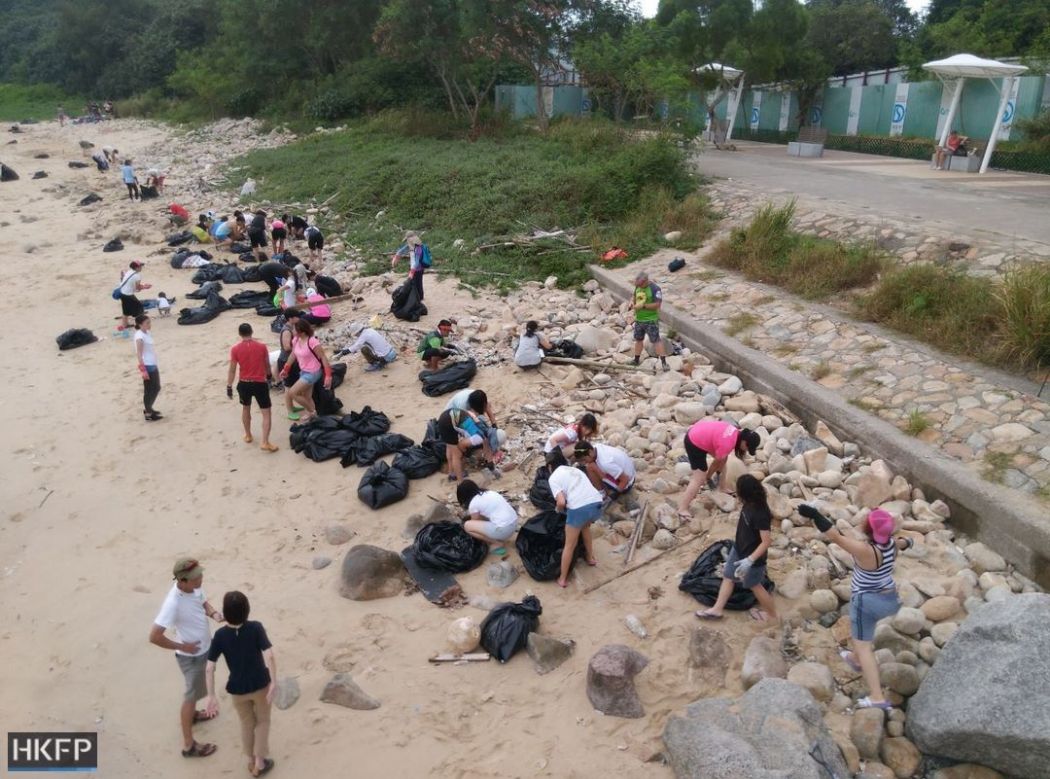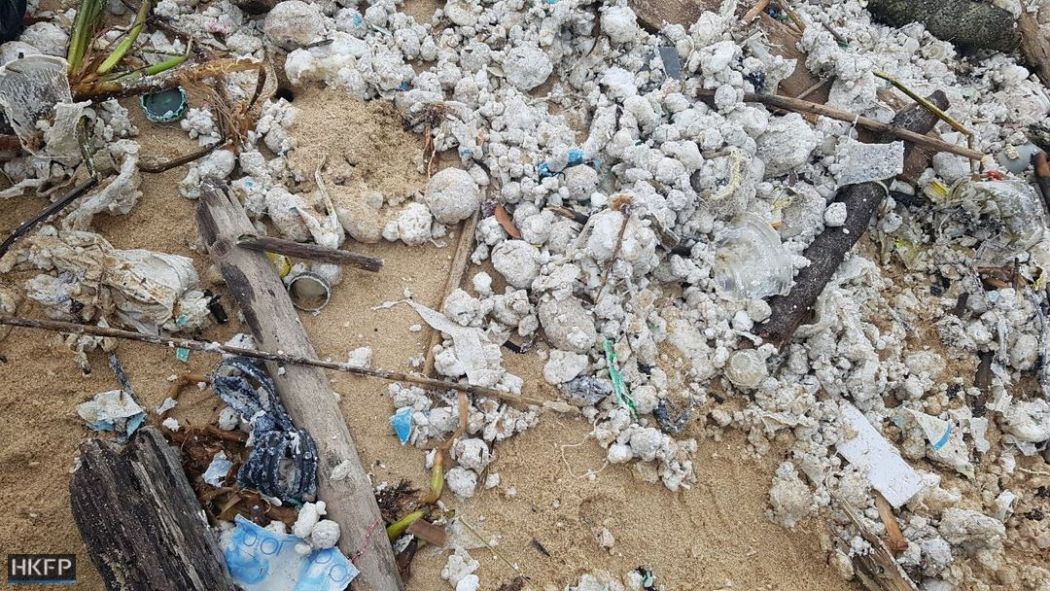Hongkongers are participating in community-led beach clean-ups around the city in an effort to clear the palm oil slick caused by last Thursday’s cargo ship collision.

On Wednesday, dozens of Lamma Island residents, students, families, and other volunteers showed up to help battle the dense sludge.

Conservationist and Lamma resident Robert Lockyer and NGOs Eco-Marine, Green Power, and Eco-Resource Center organised daily afternoon clean-ups at Nga Kau Wan and Tai Wan To Beach throughout the week.

Volunteers were provided with protective gloves and large plastic bags with which to fill the sticky palm oil, as well as any other debris they found on the beach. Thirteen government-gazetted beaches remain closed to the public, as countless other bays are affected.

Lockyer told HKFP that – due to hot weather – the substance had begun to melt into the sand, making the clean-up effort more difficult since volunteers had to dispose of heavier material.

One of the cargo vessels involved in last Thursday’s collision was carrying 9,000 tonnes of palm oil, though it is still unclear how much of the oil ended up in Hong Kong waters.

The government was only informed of the spill last Saturday.

Authorities say the palm oil is an edible, non-toxic substance.

However, dead fish have been spotted washing ashore, and environmentalists have been warned that high concentrations of palm oil may be hazardous to small children or animals upon ingestion.

Environmental organisations have said that the slick may reduce oxygen absorption in the sea, posing a threat to marine life. Additionally, grease caught on the surface of the water may become lodged in herons’ and other water birds’ wings as they dive to catch their prey, causing them to drown.

Melted palm oil has already caused the surfaces of rocks to become slippery, creating a fall hazard to visitors.

Former lawmaker Edward Yiu was on the scene participating in the clean-up on Wednesday, despite not being a resident on the island. Yiu told HKFP that the spill was beyond his imagination.
See more: In Pictures: 10 Hong Kong beaches closed after cargo ship collision causes palm oil spill

“[T]he ship company is so slow in informing the government, and they have not taken any action at all. Because the first few hours would be very critical – if they can stop the spread of those palm grease then it would be very efficient. But unfortunately they did not do so. And then the Chinese government covered it up for two more days, so then the most critical 48 hours were lost,” said Yiu.
See also: Palm oil spill: Hong Kong gov’t may seek damages from shipping companies

“These are ecological disasters. And I just cannot imagine how our government official would tell the world that [this is] edible oil and is not harmful. Did they come here to take a look about how terrible, how disastrous it is?”

The government has vowed to take legal action again the shipping firms.
Volunteer efforts will continue through the weekend. A clean-up has been scheduled by Eco Marine for Sunday at Yung Shue Wan, with more to be announced on the organisation’s Facebook page.
Additional reporting: Tom Grundy.
